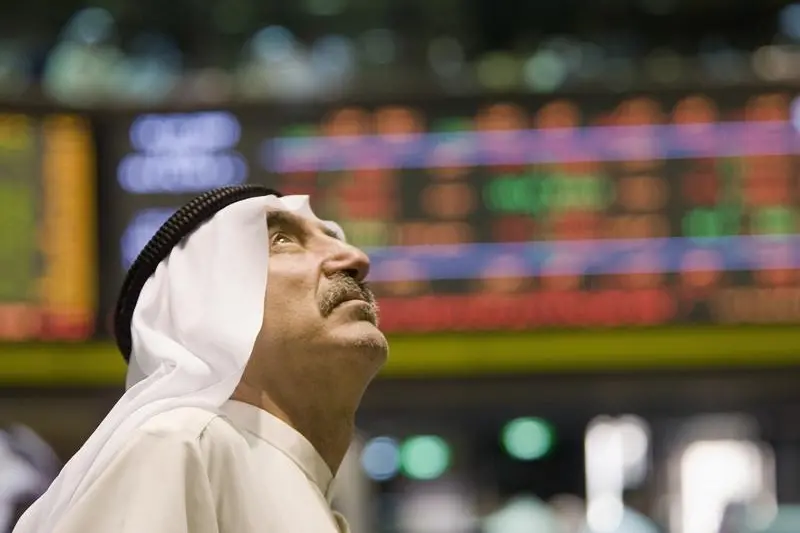PHOTO
Despite facing low levels of liquidity, Kuwait's stock exchange has an increasing probability of joining its peer GCC stock markets in Saudi, UAE and Qatar in gaining a market status upgrade by global index compiler Morgan Stanley Capital International (MSCI), analysts argue, especially with the intensive market reforms it has undergone.
MSCI announced in late June that it will include the Kuwait index in its 2019 Annual Market Classification Review for a potential reclassification from frontier to emerging market status. The index compiler will consult with market participants on the proposed reclassification of the Kuwait index, and will announce its decision in June 2019, with a potential implementation in May 2020.
Last year, the governance board of the Financial Times Stock Exchange (FTSE) Russell index compiler added Kuwait to its Secondary Emerging Market Index, in a transition that is set to take place in two stages in September and December in 2018.
“Having got through the FTSE Russell, there is good probability that Kuwait can cross the MSCI hurdle and possibly gain a weightage of 0.3 percent in MSCI Emerging markets index,” Vijay Valecha, chief market analyst at Dubai-based Century Financial Brokers told Zawya by email.
Kuwait’s capital markets regulator has instigated a series of reforms in a bid to make it more attractive to global investors, Valecha argued, such as changing its clearing and settlement cycle to move it closer to international norms, introducing measures to boost transparency and liquidity, and by ensuring reasonable trading costs and sufficient brokerage competition.
In April this year, the Kuwait Stock Exchange divided its stock market into three segments, known as the premier market, the main market and the auction market, in a bid to boost liquidity for investors. Other reforms have included a relaxing of rules to allow for dual listings of stocks.
The stock exchange is also getting ready for an initial public offering of its own shares, which could take place in the first quarter of 2019.
“Saudi Arabia’s MSCI inclusion last month has also cheered up equity markets across the Middle East, in particular the $135 billion petro dollar economy of Kuwait,” Valecha said.
Last month, global index provider MSCI said it would reclassify Saudi Arabia as an emerging market from the middle of 2019, a move that is set to make the GCC a market that is too big to ignore by foreign investors.
Kuwaiti economist Mohamad Ramadhan, who is a regular commentator for Kuwait daily newspaper Al Qabas, said that “although Kuwait has suffered from low liquidity in the past, the bourse introduced several market reforms and the main measure of success is elevating the stock exchange to international standards”.
National Bank of Kuwait said in a note published on Wednesday, 11 July, that daily trading volumes on the Kuwait exchange have averaged just 11 million Kuwaiti dinar ($36.3 million) so far this year, which it said was “very low compared to earlier years”.
However, in the two weeks that followed MSCI’s decision to include Kuwait into the classification review, activity has picked up, with volumes subsequently hitting 21 million dinar per day.
Ramahan said in a phone interview with Zawya that the challenge now faced by regulators is that MSCI has asked for some requirements that are difficult for the Kuwaiti bourse to adjust to, such as foreign investors’ ownership limits and processes of transferring stock ownership from local to foreign investors,…etc
“The most important part for the Kuwaiti market to get the nod to be upgraded to MSCI emerging market status, is to attract foreign investments into the bourse, and to facilitate the processes of transferring ownership. Otherwise, I do not see that it’ll be a smooth process,” he added.
One selling point to potential investors is that Boursa Kuwait Index is trading at attractive valuations of 9.87 forward P/E (price-to-earnings) and 3.9 percent dividend yield, according to Valecha. He also argued that there will be investors that are willing to take the risk that MSCI’s review is favourable, which would then lead to an inflow of investment.
“Globally, it has been the experience that funds move ahead of the MSCI upgrade into the target market,” he said.
In the case of the Saudi market, for instance, foreign institutional investors began buying stocks ahead of MSCI’s announcement of an upgrade last month.
Trading activity analysis during the first quarter of 2018 indicated that foreign institutional investors purchased approximately $2.1 billion worth of Saudi equities.
“Established hedge funds have more knowledge than large, passive investors. Therefore, they are more likely to front run bigger investors in Kuwait,” Eid Alrashidi, managing partner at FGA Partners, a financial services firm that provides private capital to companies in Kuwait, told Zawya by email.
MSCI’s process of the annual market classification review will be based on three criteria: the market accessibility, the size and liquidity requirements for listed companies, and the country’s economic development.
“(The) Kuwait economy is in the midst of an unprecedented expansion and approximately $71.6 billion worth of projects are expected to be implemented in 2018-19, according to some estimates. All of this should spur interest in Kuwait equities,” Valecha said.
(Reporting by Nada Al Rifai; Editing by Michael Fahy)
(nada.rifai@thomsonreuters.com)
Our Standards: The Thomson Reuters Trust Principles
Disclaimer: This article is provided for informational purposes only. The content does not provide tax, legal or investment advice or opinion regarding the suitability, value or profitability of any particular security, portfolio or investment strategy. Read our full disclaimer policy here.
© ZAWYA 2018




















